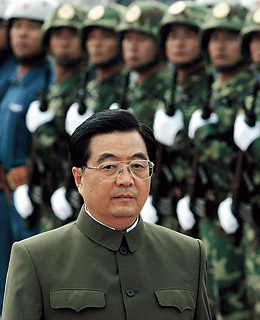
Hu Jintao is the first Chinese leader who grew up in the aftermath of the revolution that established communism in 1949. He inherits its tradition, but he has gone far beyond it. In a marked evolution from Mao Zedong, Hu, 65, has proclaimed the goal of a harmonious society whose components work together by consensus rather than direction. It is a principle he has tried to apply to international affairs as well.
Having met with Hu on many occasions, I invariably found him thoughtful, extremely well prepared and very courteous. His mastery of the subject matter seems to make small talk unnecessary to him.
In foreign policy, Hu undoubtedly believes that China is entitled to a role appropriate to its growing potential. He is not a crusader, however, and will try to accommodate the imperatives of both sides. There is much public discussion of an evolving adversarial U.S.-China relationship. This poses a challenge to statesmanship on both sides of the Pacific. Any American President is obliged to articulate the deepest values of our people, including human rights. Any Chinese President needs to reflect the necessities of his society, including the territorial integrity of a united China. The challenge for the future is whether they can find a way to work together, recognizing that an adversarial relationship will drain both sides, that many current problems can only be solved on a global basis and that a peaceful and prosperous world requires Sino-American cooperation.
Kissinger is a former U.S. Secretary of State